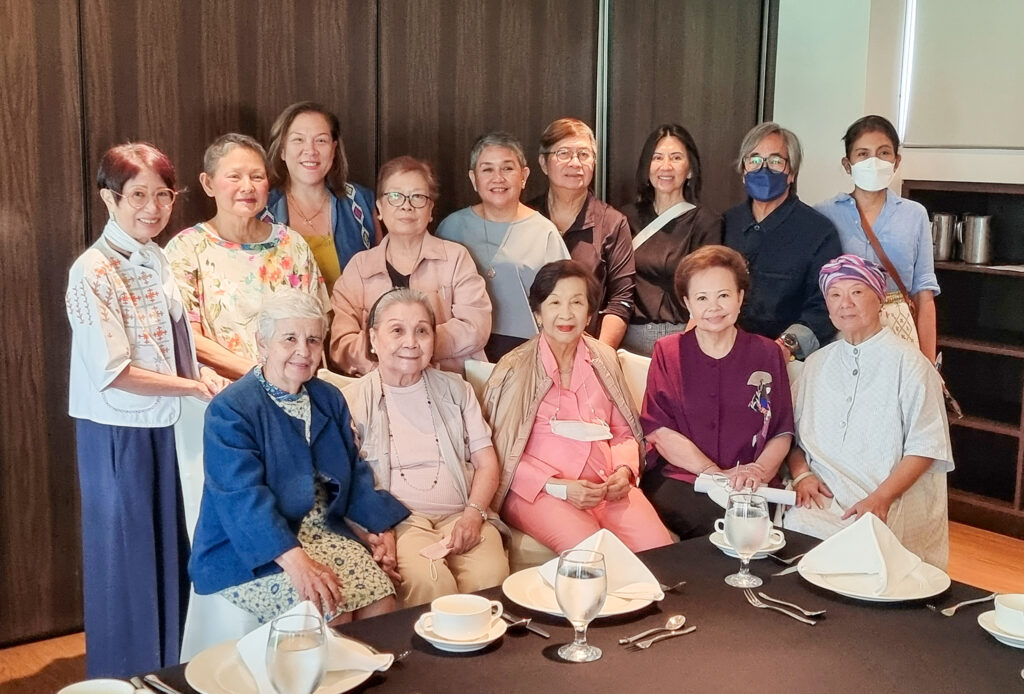Celebrating innovation and creativity among today’s young weavers, Habi: The Philippine Textile Council announced the winners of its two prestigious weaving competitions for piña and abaca, which were chosen by some of the top names in Philippine textile and fashion, and showcased at the highly attended Likhang Habi Fair in Makati City on 13 to 15 October.
Topping the Lourdes Montinola Piña Competition, which received over 30 entries, was Marilyn Almero of La Herminia Piña Weaving, for her “Peacock” piece, which also won her the special Filip + Inna Innovation Award and P50,000.
First runner-up was Raquel Eliserio for her “Piña Ina” creation, who took home P30,000; while second runner-up was Anna India Legazpi of Heritage Arts and Culture, who also took home P20,000, for her “Argyle Pattern on Piña Seda.”
The Nadres Outstanding Young Weaver Award and P20,000 cash prize went to 26-year-old Zairel Rebusta, a weaver at La Herminia Piña Weaving from Aklan, one of Habi’s regular exhibitors.
“The outstanding feature [Rebusta’s] piece is that it’s full ringgue — a gauze-like open weave. This is seldom done and resulted in a very light and soft textile. The insects laid in with the suksuk method are random, which is not easy to do,” said Adelaida Lim, Habi president emeritus.

Now on its sixth year, the Lourdes Montinola Piña Competition is the country’s premier piña weaving contest. Named after local textile champion Lourdes Reyes-Montinola, chair emeritus of the Far Eastern University, the competition invites local artisans from all over the Philippines to join and proudly exhibit their talents in weaving, dyeing, embroidering, and embellishing piña. The competition aims to keep this traditional craft alive, as well as further promote appreciation and use of Philippine textiles.
Training the spotlight on the use of abaca, Habi also held the 2nd Eloisa Hizon Gomez Abaca Weaving competition, which celebrates the well-loved and versatile abaca fiber, as well as its namesake — a prominent Kapampangan who actively encouraged the use of Filipino textiles, and is mother to popular haute couture ‘70s fashion designer-turned-monk Gang Gomez, now known as Dom Martin Gomez, OSB.
Winners of the abaca weaving competition include Anna India Legazpi, who won under the Applied Abaca Category; Agustin Tawi Sudaw, for the Abaca Ikat Category; and Edgar Cornito’s “Beyond the Horizon” piece under the Pure Abaca Category. All winners took home P50,000 each as part of their prize.
“The innovation really stood out — it’s something different all the way, and what’s beautiful is that you see the innovation coming from the young,” said one of the competition’s judges, Vicky Vizcarra Amalingan-Sales, chair of S.C. Vizcarra Inc., a major brand synonymous with fine, handcrafted bags and home items made of wicker.
For the Piña Weaving competition, Sales was joined on the juror panel by no less than Far Eastern University chair emeritus Lourdes Montinola herself; Felicidad Nadres, founder of EN Barong Filipino Inc.; textile designer, heritage conservationist and social activist Patis Tesoro; and author and heritage advocate Felice Sta. Maria.
Meanwhile, on the juror panel for the abaca competition were the daughter of Eloisa Hizon Gomez, Erlie Gomez Manaloto; top designers Ditta Sandico, Noli Hans, Barge Ramos and Filip + Inna creative director Len Cabili.
All competitors also showcased their works at the recently concluded Likhang Habi Market Fair, the annual three-day exhibit, bazaar, and educational event highlighting the country’s weaving culture.
Starting as a 12-booth event back in 2009, Likhang Habi now has over 100 participants, drawing huge crowds year after year. “The idea of our fair is to really go out to the weaving communities and encourage them to come,” says Habi chair emeritus Maribel Ongpin. “Most are now self-sufficient, and we now have a waiting list.”
